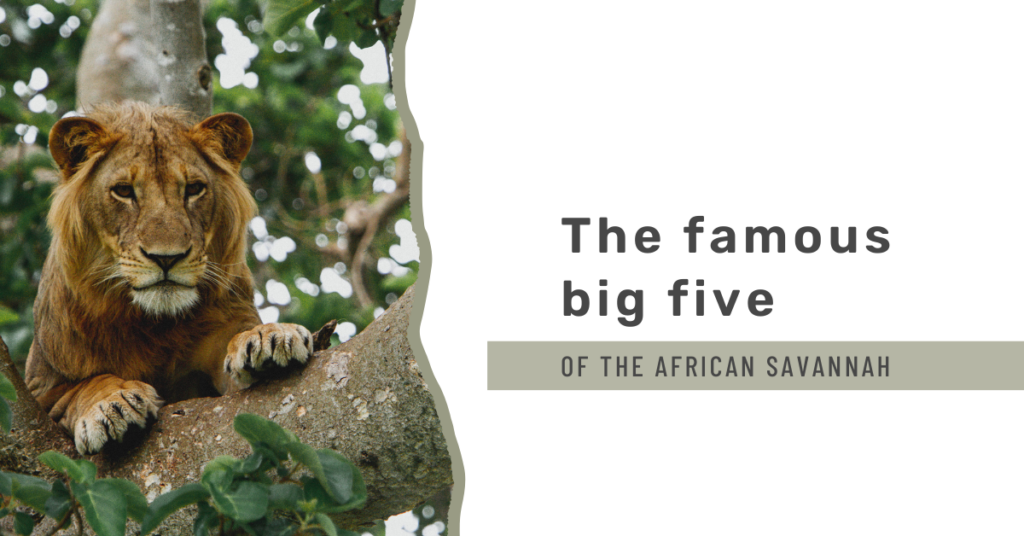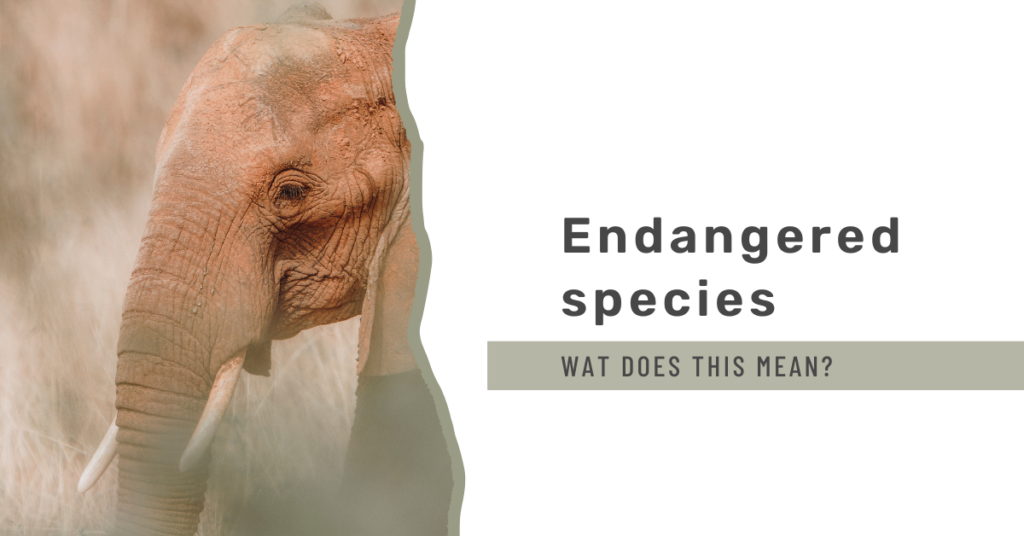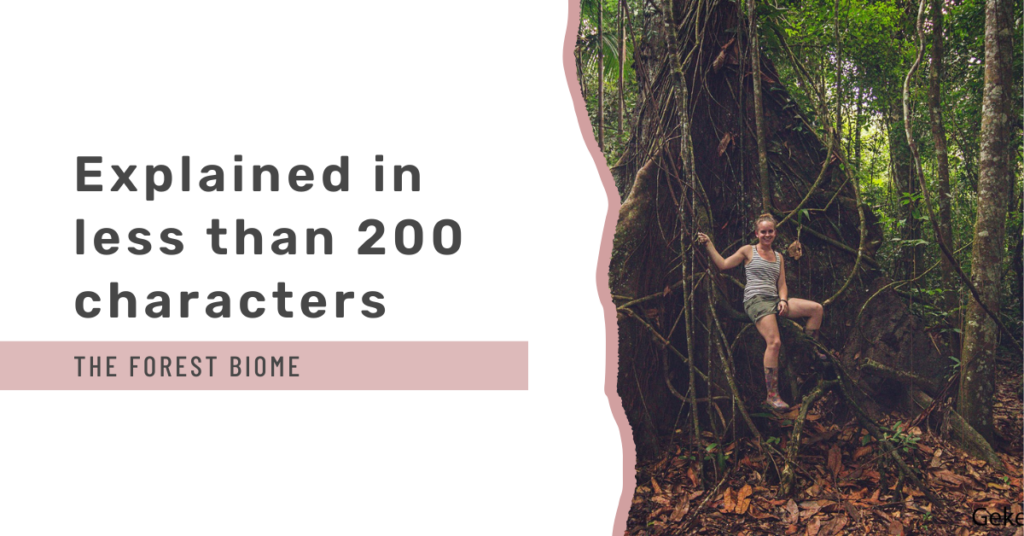Are you passionate about the environment and wildlife conservation? Do you want to make a difference in the world of ecology? Pursuing a career in wildlife management or nature conservation can be a rewarding and fulfilling path for those with a deep commitment to sustainability. However, the road to success in this field requires more than just a love for nature. In this blog post, we’ll explore the key steps you can take to prepare for a career in wildlife management or nature conservation. From pursuing the right education to gaining practical experience and building a strong professional network. We’ll cover the essential elements of a successful career in this field. So, whether you’re just starting out on your journey or looking to enhance your existing skills. Read on to learn more about how to succeed in the world of wildlife management and nature conservation. You can also read more about how I prepared for my career!
Preparing for a Career in Wildlife: The Importance of Education
If you’re passionate about wildlife and nature conservation, you may be wondering what steps you can take to prepare for a career in these fields. While experience and networking are certainly important, one of the most crucial factors in pursuing a career in wildlife management or nature conservation is education. With the right education, you can gain the knowledge and skills needed to succeed in a variety of careers related to wildlife management, conservation, and ecology. Here are some different degrees that can be particularly relevant for those interested in a career in wildlife.
Degree in Wildlife Biology
A degree in wildlife biology is a great option for those interested in pursuing a career in wildlife management or conservation biology. Wildlife biology programs typically focus on the study of the behaviour, ecology, and conservation of wildlife populations, as well as the management and restoration of habitats. Students pursuing a degree in wildlife biology can expect to take courses in ecology, genetics, animal behaviour, wildlife management techniques, and conservation biology. In addition to classroom learning, students often participate in field studies and research projects, gaining hands-on experience with various wildlife species and habitats.
A degree in wildlife biology can lead to a variety of career paths, including roles as wildlife biologists, conservation biologists, wildlife managers, or environmental consultants. Graduates may work in government agencies, non-profit organisations, or private consulting firms. One benefit of a degree in wildlife biology is the opportunity to specialise in a specific area of interest. For example, students may choose to focus on a particular taxonomic group, such as birds or mammals, or a particular conservation issue, such as habitat loss or invasive species management. This specialisation can help graduates stand out in the job market and pursue their specific interests within the field.
Degree in Ecology
degree in ecology is also an excellent option for those interested in pursuing a career in wildlife management or conservation. Ecology is the study of the relationships between organisms and their environment, and how those relationships impact ecosystems as a whole. Students pursuing a degree in ecology can expect to take courses in topics such as population and community ecology, biostatistics, conservation biology, and ecosystem management. They may also have the opportunity to specialize in areas such as aquatic ecology, plant ecology, or landscape ecology.
Like with a degree in wildlife biology, students pursuing a degree in ecology often have the opportunity to participate in fieldwork and research projects, gaining hands-on experience in data collection, analysis, and interpretation. A degree in ecology can lead to a variety of career paths, including roles as environmental scientists, conservation biologists, wildlife managers, or restoration ecologists. Graduates may work for government agencies, non-profit organizations, or private consulting firms. One benefit of a degree in ecology is the broad range of skills and knowledge that it provides. Graduates with this degree are equipped with the ability to understand complex ecological systems and the factors that influence them, as well as the skills to analyze and interpret large datasets.
Degree in Environmental Science
A degree in environmental sciences is another relevant option for those interested in a career in wildlife management or nature conservation. Environmental science is a multidisciplinary field that combines elements of biology, chemistry, geology, physics, and social sciences to study the environment and its processes. Students pursuing a degree in environmental sciences can expect to take courses in topics such as environmental chemistry, ecology, geology, atmospheric science, and sustainability. They may also have the opportunity to specialize in areas such as conservation biology, environmental policy, or environmental engineering.
Like with degrees in wildlife biology and ecology, students pursuing a degree in environmental sciences often have the opportunity to participate in fieldwork and research projects, gaining hands-on experience in data collection, analysis, and interpretation. A degree in environmental sciences can lead to a variety of career paths, including roles as environmental consultants, policy analysts, or environmental engineers. Graduates may work for government agencies, non-profit organizations, or private consulting firms.
Degree in Forestry
A degree in forestry is another relevant option for those interested in a career in wildlife management or nature conservation. Forestry is the science, art, and practice of managing forests, and encompasses a range of activities including tree planting and harvesting, wildlife management, and natural resource conservation. Students pursuing a degree in forestry can expect to take courses in topics such as forest ecology, forest management, silviculture, and wildlife management. They may also have the opportunity to specialize in areas such as forest biology, forest policy, or forest engineering.
Like with degrees in wildlife biology, ecology, and environmental sciences, students pursuing a degree in forestry often have the opportunity to participate in fieldwork and research projects, gaining hands-on experience in data collection, analysis, and interpretation. A degree in forestry can lead to a variety of career paths, including roles as foresters, natural resource managers, or environmental consultants. Graduates may work for government agencies, non-profit organizations, or private companies in industries such as timber or paper production.
Degree in Geography
A degree in geography can also be relevant for those interested in a career in wildlife management or nature conservation. Geography is the study of the earth and its features, including the physical and cultural aspects of the environment. Students pursuing a degree in geography can expect to take courses in topics such as physical geography, human geography, cartography, and geographic information systems (GIS). They may also have the opportunity to specialize in areas such as environmental geography, conservation geography, or biogeography.
Geography is an interdisciplinary field, meaning that students may have the opportunity to explore connections between geography and other fields such as ecology, geology, or environmental science. This can be beneficial for those interested in pursuing a career in wildlife management or nature conservation, as it allows for a broad understanding of how different disciplines intersect and influence conservation efforts. Graduates with a degree in geography can pursue a variety of career paths, including roles as GIS analysts, cartographers, or environmental consultants. They may work for government agencies, non-profit organizations, or private companies in industries such as agriculture or natural resource management.
One benefit of a degree in geography is the emphasis on spatial analysis and understanding of the relationships between different components of the environment. This can be useful in wildlife management and nature conservation efforts, as it allows for a better understanding of how different factors such as habitat fragmentation or climate change may impact wildlife populations. Overall, a degree in geography can provide a strong foundation for those interested in pursuing a career in wildlife management or nature conservation. Graduates with this degree are well-equipped to analyze spatial data and understand the complex interactions between different components of the environment, contributing to conservation efforts for wildlife and other species.
Degree in Wildlife Management
A degree in wildlife management is specifically designed to prepare students for a career in wildlife conservation and management. This degree provides students with a comprehensive understanding of the ecology and behaviour of wildlife, as well as the policies and regulations that govern wildlife management. Coursework in a wildlife management degree program typically covers a range of topics, including wildlife biology, habitat management, population dynamics, wildlife policy and law, and human-wildlife conflict. Students also learn practical skills such as field research methods, surveying techniques, and GIS mapping.
A degree in wildlife management can lead to a variety of career paths, including wildlife biologist, wildlife manager, conservation officer, and environmental consultant. Graduates of this program may work for government agencies such as the U.S. Fish and Wildlife Service, state wildlife agencies, or non-profit organizations such as the National Wildlife Federation.
Degree in Zoology
A degree in zoology provides a comprehensive understanding of animal biology, behaviour, ecology, and evolution. Students pursuing this degree gain a deep understanding of the diversity of animal life, from microscopic organisms to complex vertebrates, and the ways in which animals interact with each other and their environment. Coursework in a zoology degree program typically includes a range of topics, including animal physiology, genetics, evolution, ecology, animal behaviour, and conservation biology. Students also gain practical skills such as laboratory techniques, field research methods, and statistical analysis.
A degree in zoology can lead to a variety of career paths, including wildlife biologist, conservation biologist, animal behaviourist, zoologist, and veterinary scientist. Graduates of this program may work for government agencies, non-profit organizations, zoos and aquariums, or research institutions.
Degree in Nature Conservation
Nature conservation is a field that focuses specifically on the preservation and protection of natural habitats and biodiversity. A degree in nature conservation can provide you with knowledge and skills related to habitat restoration, wildlife management, and conservation policy. In a nature conservation program, you’ll study topics such as endangered species management, ecosystem restoration, and conservation planning.
Some specific careers that may be available to those with a degree in nature conservation include park ranger, conservation biologist, wildlife manager, and environmental educator. These careers may involve working with government agencies, non-profit organizations, or private companies to protect and manage natural resources.
Why Education in Wildlife Management and Nature Conservation Matters
Education is a vital component in preparing for a career in wildlife management and nature conservation. A strong educational background in relevant subjects provides a solid foundation of knowledge and skills required to succeed in this field. In addition to acquiring practical skills such as data analysis, field research methods, and statistical analysis, a formal education also provides a deep understanding of ecological and conservation principles, which are essential for effective wildlife management and nature conservation.
Furthermore, a degree in a relevant field provides students with the opportunity to explore their interests and passions, and to develop specialized knowledge and skills that are directly applicable to their career goals. Pursuing higher education in fields such as wildlife biology, ecology, forestry, geography, and environmental sciences can open doors to a variety of career paths in government agencies, non-profit organizations, research institutions, and consulting firms.
Having a strong educational background also enhances an individual’s credibility and marketability in the job market. Employers in the field of wildlife management and nature conservation often seek candidates with a relevant degree and practical experience, and having both of these can increase an individual’s chances of securing a job in this competitive field. In summary, education plays a critical role in preparing individuals for a career in wildlife management and nature conservation. Pursuing a degree in a relevant field provides students with a strong foundation of knowledge and skills, specialized expertise, and increased marketability in the job market.
Practical Skills and Experience
Practical skills and experience are essential for a successful career in wildlife management or nature conservation. This can include hands-on experience working in the field, as well as technical skills related to data collection, analysis, and communication. Hands-on experience can be gained through internships, volunteering, or field research opportunities. For example, you may consider volunteering with a local conservation organization to participate in habitat restoration projects, wildlife surveys, or citizen science initiatives. Alternatively, you could seek out internships or research positions with government agencies, non-profit organizations, or private companies.
Finally, strong communication skills are essential for a career in wildlife management or nature conservation. This includes the ability to communicate effectively with colleagues, stakeholders, and the public about conservation issues and strategies. Communication skills can be developed through coursework in science communication, as well as through practice in presenting research or outreach materials. By developing practical skills and gaining hands-on experience in the field, you can enhance your abilities as a wildlife manager or conservation biologist and become a more competitive candidate for job opportunities in the field.
Professional Network
Building a strong professional network is also an important aspect of preparing for a career in wildlife management or nature conservation. A professional network can provide you with valuable connections to potential employers, mentors, and collaborators, and can also help you stay up to date with the latest developments and opportunities in the field.
One way to start building your professional network is by getting involved in relevant organizations and professional associations. These may include organizations such as The Wildlife Society, the Society for Conservation Biology, or the National Audubon Society. Attending conferences and events hosted by these organizations can provide you with opportunities to meet other professionals in the field and learn about the latest research and trends. Volunteering and internships can also be a great way to build your professional network. By volunteering with local conservation organizations or participating in field research projects, you can meet other professionals in the field and gain valuable experience.
Finally, don’t underestimate the importance of social media in building your professional network. Platforms such as LinkedIn and Twitter can be great tools for connecting with other professionals, sharing your work and accomplishments, and staying up to date with the latest news and developments in the field. By building a strong professional network, you can open up new opportunities for yourself and enhance your ability to make a meaningful impact in the field of wildlife management and nature conservation.
Data skills
In many wildlife management and nature conservation careers, data analysis is an essential skill. This is because many conservation efforts involve monitoring and analyzing ecological data in order to make informed decisions about habitat management, species protection, and other conservation strategies. For example, a conservation biologist may use data analysis to track the population of an endangered species over time, assess the success of a habitat restoration project, or evaluate the impact of a particular conservation policy. Similarly, a wildlife manager may use data analysis to track animal movements, assess the health of a population, or identify patterns in habitat use.
Having skills in data analysis can make you a valuable asset in many wildlife management and nature conservation careers. In order to develop these skills, you may consider pursuing coursework in statistics, data visualization, or geographic information systems (GIS). There are also many online resources available to help you learn these skills, such as tutorials, workshops, and data analysis software. By developing your skills in data analysis, you can enhance your ability to make informed decisions about conservation strategies and contribute to the larger effort to protect and manage natural resources.
Keys to Success: Education, Experience, and Passion.
To prepare for a successful career in wildlife management or nature conservation, pursuing a degree in a relevant field is just the first step. It’s crucial to gain practical experience, build a strong professional network, and stay up to date with the latest research and developments in the field. But beyond these important factors, it’s also essential to have a deep passion for the environment and conservation. The challenges facing our planet are complex and often difficult to solve, so a strong commitment to sustainability is key to making a difference in the field of ecology. With the right combination of education, experience, and passion, you can create a meaningful impact in the world of wildlife management and nature conservation.
Want to support my work?
I spend a lot of time keeping this website filled with educational content and keeping updates about what I do to achieve my dream of working and living in Africa. Do you want to support me? You can buy me a coffee or purchase one of my digital prints. All proceeds will go towards my research work and the time spent on this website.







